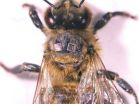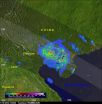(Press-News.org) Sometimes finding the best bang for your buck feels like a wild goose chase. It's hard to know which stores offer the best prices at any given time. According to a new study in the Journal of Consumer Research, when trying to maximize savings, consumers will choose retailers they believe offer the lowest prices the majority of the time.
"We looked at the impact different pricing strategies have on the stores people shop at when they do not know the product prices unless they visit the store," write authors Shai Danziger (Tel Aviv University), Liat Hadar (IDC Herzliya), and Vicki G. Morwitz (New York University).
To simulate 100 weekly purchases from a retail store, study participants were asked to purchase products from one of two competing retailers 100 different times. Participants were given a monetary incentive to minimize their total spending and were instructed to base their selections strictly on price.
On each shopping trip, participants first selected a retailer before they were shown the store prices for that week. The authors manipulated the pricing strategies, but in most cases, one retailer used deep-discount pricing while the competing retailer used everyday low pricing or frequent (but small) discounts. While the average price of the two retailers was the same for most experiments, results showed that people consistently tend to choose the retailer they believe is less expensive more often than the retailer they believe is cheapest on average. This pattern held whether or not the retailer used frequent discounts or an everyday low price guarantee.
These results offer insight for companies regularly using deep discounts or pricing their products lower than their competitors' average prices. The authors suggest a more effective strategy is to simply offer prices that are generally always lower than their competitors' prices. "One reason consumers find these retailers so attractive is that their product prices tend to be cheaper than those of their competitors on the majority of shopping trips. Consumers seem to prefer many small discounts to a few large ones and their perceptions of average prices do not drive their store choices," the authors conclude.
INFORMATION:
Shai Danziger, Liat Hadar, and Vicki G. Morwitz. "Retailer Pricing Strategy and Consumer Choice under Price Uncertainty." Journal of Consumer Research: October 2014.
For more information, contact Shai Danziger or visit http://ejcr.org/.
Retail pricing strategies: Do consumers prefer deep discounts or everyday low prices?
2014-07-22
ELSE PRESS RELEASES FROM THIS DATE:
Avoiding buyer's remorse: Is product satisfaction higher when consumers are flush?
2014-07-22
It's the last day of the month and your paycheck arrives tomorrow. You buy a new pair of shoes but have a nagging feeling your money could have been better spent. According to a new study in the Journal of Consumer Research, consumers are less satisfied with what they have purchased with their bottom dollar compared to when they have money in the bank.
"As someone spends money, parting with one's remaining funds makes a product feel more costly and causes consumers to be less satisfied with what they buy," write authors Robin L. Soster (University of Arkansas), Andrew ...
Report on viruses looks beyond disease
2014-07-22
In contrast to their negative reputation as disease causing agents, some viruses can perform crucial biological and evolutionary functions that help to shape the world we live in today, according to a new report by the American Academy of Microbiology.
"Viruses participate in essential Earth processes and influence all life forms on the planet, from contributing to biogeochemical cycles, shaping the atmospheric composition, and driving major speciation events," states Marilyn Roossinck of Pennsylvania State University, a member of the steering committee that helped to ...
Radio frequency ID tags on honey bees reveal hive dynamics
2014-07-22
CHAMPAIGN, Ill. — Scientists attached radio-frequency identification (RFID) tags to hundreds of individual honey bees and tracked them for several weeks. The effort yielded two discoveries: Some foraging bees are much busier than others; and if those busy bees disappear, others will take their place.
The findings are reported in the journal Animal Behaviour.
Tagging the bees revealed that about 20 percent of the foraging bees in a hive brought home more than half of the nectar and pollen gathered to feed the hive.
"We found that some bees are working very, very hard ...
Vanderbilt study shows therapeutic bacteria prevent obesity in mice
2014-07-22
A probiotic that prevents obesity could be on the horizon. Bacteria that produce a therapeutic compound in the gut inhibit weight gain, insulin resistance and other adverse effects of a high-fat diet in mice, Vanderbilt University investigators have discovered.
"Of course it's hard to speculate from mouse to human," said senior investigator Sean Davies, Ph.D., assistant professor of Pharmacology. "But essentially we've prevented most of the negative consequences of obesity in mice, even though they're eating a high-fat diet."
Regulatory issues must be addressed before ...
Enhanced NIST instrument enables high-speed chemical imaging of tissues
2014-07-22
A research team from the National Institute of Standards and Technology (NIST), working with the Cleveland Clinic, has demonstrated a dramatically improved technique for analyzing biological cells and tissues based on characteristic molecular vibration "signatures." The new NIST technique is an advanced form of the widely used spontaneous Raman spectroscopy, but one that delivers signals that are 10,000 times stronger than obtained from spontaneous Raman scattering, and 100 times stronger than obtained from comparable "coherent Raman" instruments, and uses a much larger ...
NASA's TRMM satellite measures up Super Typhoon Rammasun
2014-07-22
NASA's TRMM satellite measured up Super Typhoon Rammasun's rainfall rates, rainfall totals and cloud heights providing a look at the inner workings and aftermath of the storm.
Super Typhoon Rammasun struck the southern coast of China on Friday, July 18 as a very powerful super typhoon with sustained winds estimated at 135 knots (~155 mph or equivalent to a Category 5 hurricane on the US Saffir-Simpson scale), making it the strongest typhoon to hit the area in several decades.
Rammasun made landfall at 3:30 p.m. (local time) on Hainan Island where the southern half of ...
Preschoolers can reflect on what they don't know
2014-07-22
Contrary to previous assumptions, researchers find that preschoolers are able to gauge the strength of their memories and make decisions based on their self-assessments. The study findings are published in Psychological Science, a journal of the Association for Psychological Science.
"Previously, developmental researchers assumed that preschoolers did not introspect much on their mental states, and were not able to reflect on their own uncertainty when problem solving," says psychological scientist Emily Hembacher of the University of California, Davis, lead author of ...
Extra exercise helps depressed smokers kick the habit faster
2014-07-22
This news release is available in French. Montreal, July 22, 2014 — People diagnosed with depression need to step out for a cigarette twice as often as smokers who are not dealing with a mood disorder. And those who have the hardest time shaking off the habit may have more mental health issues than they are actually aware of.
Those insights were among the collective findings recently published in the journal Nicotine & Tobacco Research by a team of researchers based in part at Concordia University.
While nearly one in five North American adults are regular smokers, ...
CEOs who motivate with 'fightin' words' shoot themselves in the foot
2014-07-22
Heading into the war room to fire up the troops? Declaring war on the competition to boost sales? Well, CEO, you might want to tamp down them's fightin' words—you could be shooting yourself in the foot.
A new Brigham Young University business study finds that bosses who try to motivate their employees with violent rhetoric—think of Steve Jobs declaring "thermonuclear war" on Samsung—end up motivating rival employees to play dirty.
"Business executives use violent language all the time," said David Wood, BYU professor of accounting and one of two BYU authors on the paper. ...
Dangers of desert dust: New diagnostic tool for valley fever
2014-07-22
VIDEO:
In this video, biodesign researcher Krupa Navalkar describes a new diagnostic technique for pinpointing Valley Fever.
Click here for more information.
On July 5, 2011, a massive wall of dust, ("haboob," in Arabic), blanketed Phoenix, Arizona, creating an awesome spectacle, (or stubborn nuisance, depending on your perspective). Dust storms are a common occurrence in the arid desert environments of the American Southwest.
But windborne dust can be a serious health risk, ...



